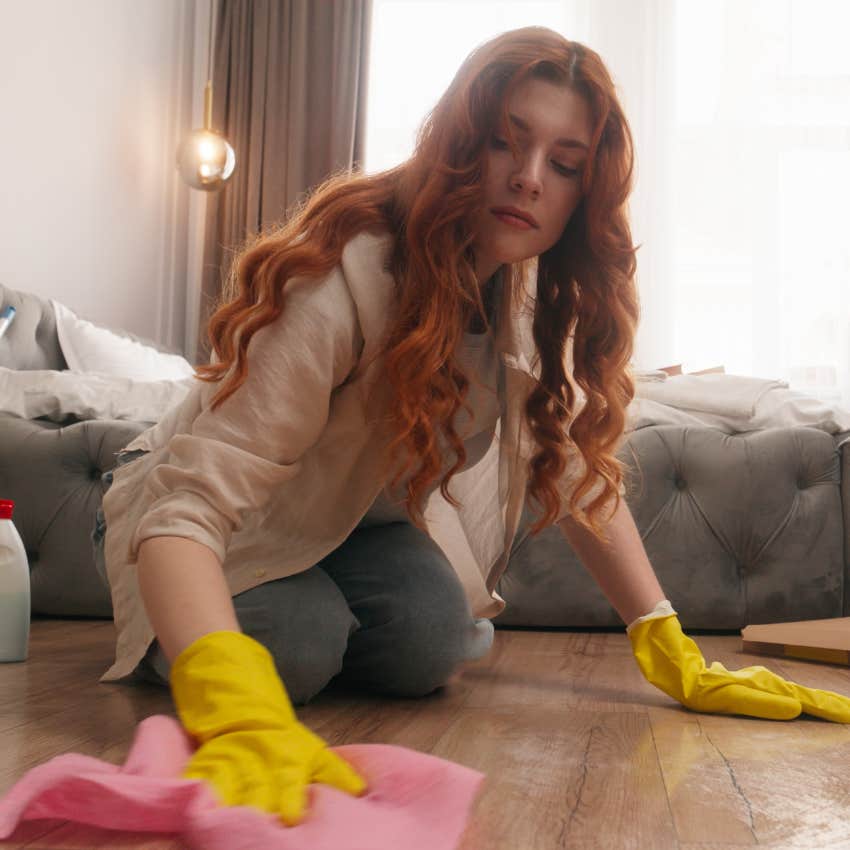What If Marriage Just Isn’t Meant To Be Equal?
Maybe we should stop trying to retrofit patriarchal institutions for gender equity.
 Jackson Schaal | Unsplash
Jackson Schaal | Unsplash Is an equitable marriage worth fighting for? If you’d asked me that question six years ago, I would have said, “YES!” I was in the throes of a marriage that I thought still stood a chance. My husband and I were fresh off another round of counseling — a total of six sessions, which is what my job’s Employee Assistance Program would cover for free.
The sessions had accomplished nothing, except to make my husband feel okay about using our home equity to put a down payment on the luxury car he was intent on buying himself as a graduation present. I had wanted to talk about this decision with a third party because there was a lot tied up in it.
That I neither wanted this car nor did I think we could reasonably afford it, was almost beside the point. It wasn’t just about the car. I didn’t need a therapist to help me understand this, but I did need a therapist to help my husband understand this.
After eight years of putting my needs second so my husband could finish school — eight years that included two pregnancies, two births, and two babies — I simply thought that his graduation might herald a new phase in our relationship. One that took both of us into account.
Our (male) marriage counselor thought the car my husband wanted to purchase was cool. They spent many precious minutes of our sessions drooling over all its amazing features.
It was almost like they were following a script, like a director had coached them to act like two ridiculous male stereotypes. And there I sat, the naggy wife, intent on ruining all their fun.
My husband bought the car. I bought books like The 80/80 Marriage, Fair Play, and The Secrets of Happy Families. I talked a lot to my husband about these books, but he never could seem to get around to reading them. And that's when I thought:
Is an equitable marriage even worth fighting for?
 MAYA LAB / Shutterstock
MAYA LAB / Shutterstock
At first, I thought I could solve all the nagging inequities with spreadsheets, kanban boards, and family meetings.
Then I decided that dialogue scripts and communication tools were the answer. Then I designed a weekly “power hour,” which consisted not of taking consecutive shots of beer but rather a whole-family house organizing session that would help us tackle the labor, together, of sorting through All The Things that found their way into the nooks and crannies of our home.
Incidentally, Family Power Hour is an awesome idea, and it’s one I came up with all by myself. I didn’t even have to read an article or book. (I’m willing to bet there’s an article or book out there somewhere that recommends some iteration of it, but it’s not one I’ve read. I’m going to give myself the credit here.)
Sorting through household things is one of those invisible tasks that often falls to women and is rarely acknowledged, let alone deemed worthy of gratitude. By doing this together, I reasoned, we would all gain an appreciation for the labor and feel invested in keeping things more or less organized moving forward.
My husband said he was on board; I ignored the note of reluctance in his voice. We tried Sunday power hours for several weeks. I blasted music and tried to make it fun. They were effective.
The kids, despite their inevitable initial protests, even seemed to enjoy them. But one person was not having fun, and that person was my husband.
One Sunday morning, he and our son were sorting through Legos, and he decided to drop out of the power hour early. I asked him why. He said, “Why am I spending my time doing this? These Legos aren’t even mine."
At the time, I was sorting through a month’s worth of mail on top of our fridge, at least half of which wasn’t addressed to me. I was even holding an envelope with his name on it. What I wanted to say was: “Are you kidding me??” But I was trying to practice radical generosity, and the most generous thing I could do in that moment was say nothing.
In hindsight, even if I wasn’t yet ready to admit it, this was the moment I realized that equity in the context of this particular marriage was nothing more than a pipe dream. And in sharing my “particular” story with a broader audience, I’ve learned that my story is not so particular.
Here’s what I’ve come to believe: If you are a woman married to a man whose words and actions consistently demonstrate that he believes his time and labor to be more important than yours, your chances of ever achieving equity in your marriage are slim, at best.
It doesn’t matter how many books you read or how many counseling sessions you attend. That’s because you can’t force equity. Both parties need to be invested in it. Both parties need to be willing to learn and unlearn.
Achieving an equitable heterosexual marriage generally means asking men to do more. It means that men proactively take on more labor and responsibility at home. It could mean, heaven forbid, that they spend Sunday mornings with their children sorting through Legos that aren’t even theirs.
But when men already feel “involved,” already feel they’re “doing their share” (i.e. more than their fathers did), already feel stretched thin, and have already been socialized to have little regard or respect for the hundreds of behind-the-scenes tasks required to keep a family chugging along, there is not a lot of intrinsic motivation to change things up.
More crucially, the term 'equitable' marriage could be considered an oxymoron — marriage was never designed to be equitable.
That was never the point. From the dawn of the institution, marriage was a business contract that listed women alongside livestock. Any measures put in place to “protect” women were simply because society was unwilling to offer us any other means of achieving financial independence.
Marriage wasn’t initially a religious institution, nor was it ever about silly little notions of romantic love. Today, it’s still essentially a business contract (which doesn’t really register for many of us until we get divorced), but now we’re supposed to love our business partners, and some of us have gone and gotten God’s will involved in the whole mess, too.
So yes, the institution has evolved over the 4,000 some-odd years humans have been practicing it. Perhaps it stands to reason that the institution could continue to evolve, that we could find a way to “fit” gender equity into heterosexual marriage.
Some couples have done an admirable job of this. In thinking about the few heterosexual couples I know personally, they are the ones in which the man entered into marriage determined to do it differently. He took it upon himself to deconstruct his behaviors and attitudes. He read the books, without his wife even asking him to.
To make the square peg of equity fit into the round hole of marriage, a heterosexual man first has to understand and accept that an equitable marriage won’t happen by default. It requires his dedication, intention, and active participation.
That doing what his wife asks him to do isn’t an equitable marriage, even if he always does it promptly with a smile (which he probably doesn’t). That “default” means his wife is doing more, even if it's labor he doesn’t see, value, or truly understand. That to see, value, understand, and take on this labor is a journey he needs to take of his own volition.
When women fight for equitable marriages, but men aren’t meaningfully fighting alongside us, we are fighting a losing battle.
This may sound hopelessly pessimistic, but it’s quite the opposite. It reminds me of one of the basic premises of the Al-Anon meetings (recovery meetings for friends and families of alcoholics) that I began attending two years ago. The premise is this: I can’t save or fix the alcoholic in my life. He has to embark on his recovery journey. I can only save or fix myself.
It was a devastating realization at first. I wasn’t the wife who was hiding bottles or counting drinks, but I’d spent so many years trying to save my husband from his trauma and addiction simply by offering him stability, love, and a leg up in life. Instead of seeking his recovery journey, he was using me as a crutch — not maliciously, necessarily, but because it was the pattern we’d fallen into.
Alongside the realization that I couldn’t save or fix the alcoholic in my life was the realization that I couldn’t save or fix my marriage. Again, we’d fallen into a pattern, and we couldn’t break out of it without his active, and willing, participation.
This realization felt similarly devastating, but it ultimately empowered me to seek a separation. And now I can’t help but think of all the other women out there fighting losing battles.
Reading all the books, seeing all the therapists, using all the tools. I think about all the time women expend working on their marriages, all the energy that gets sucked into the vortex of the nuclear family, all the gendered patterns of behavior our kids are still absorbing.
And I wonder: Wouldn’t our time and energy be better used creating new family and community structures altogether? Don’t we have a better chance at equity in a system that we help design?
I co-own a company that builds websites (stay with me here), and we often talk about approaching website accessibility with an opportunity mindset. When someone hands you a checklist of things you need to do in the name of ADA compliance, you are likely to grudgingly go through it and put in the minimal effort required to not get sued.
But if you design a new website from the ground up, to offer visitors with disabilities the same high-quality user experience as everyone else, you’ll end up with a far superior website for everyone.
What does website design have to do with marriage? Well, what I see in so many married heterosexual men is a compliance mindset. What do I have to do to keep wifey2 from getting upset, and how fast can I get these chores done so I can enjoy my well-earned leisure time?
What I see in so many married heterosexual women is an intense focus on the checklists and a persistent frustration that their marital user experience is still not that great. Just like retrofitting an existing website for accessibility doesn’t get to the core of disabled visitors’ needs, retrofitting an existing marriage for equity can bear similarly lackluster fruit.
In a Substack article, The unit of matrimony is not the chore — which I stumbled across because the author takes a few paragraphs from a long article I wrote about divorce to trivialize my reasons for leaving my husband (“I’m not leaving anything out,” he assures his readers, expressly leaving out several other reasons that I share later in the piece) — “ Kitten” states:
“... the practice of bean-counting the business of running a household and a family… is a trap. Marriage is a partnership, but it’s not an equal one, at least not on the physical plane. The different jobs that men and women do are not fungible and cannot be meaningfully compared. It is a fool’s errand to attempt to calculate the exchange rate between gestating a new baby and mowing the lawn.”
 NDAB Creativity / Shutterstock
NDAB Creativity / Shutterstock
It might surprise Kitten to know that I kind of agree with him here. I have watched many women count beans in the name of equity, and I have done it myself. It’s no fun. It can get to a point of feeling ridiculous, and most crucially, it doesn’t work.
Marriage is not an equal partnership on any plane, physical or otherwise, because you can’t count beans for invisible labor that your partner refuses to see.
Your husband might get beans for going grocery shopping, but you don’t get beans for assessing the food in the fridge and pantry and planning meals for the week because there’s nothing tangible to show for it.
Kitten even admits that women typically “do more in the chore and childcare arenas.” He concedes that when we don’t count the beans, the women, by default, end up with more.
Where Kitten and I disagree, quite dramatically, is in whether or not this is fundamentally okay. Yes, says Kitten. Women should accept the extra beans with a smile because women who do this are happier wives, and we should be grateful that our husbands aren’t beating or cheating on us.
I say, abso-fricking-lutely not. Let’s share the darn beans. Let’s stop trying to foist them on grudging partners and let’s build a system in which women are not isolated in nuclear families and told to do more and give more in the name of holy matrimony.
We don’t have to reinvent the wheel here. Humans lived for hundreds of thousands of years in egalitarian social arrangements and familial structures, before the institution of marriage was even a thing. We can seek out or start co-housing communities.
We can reproduce with someone, if we so choose, whom we’re not bound to for life. We can build gender-diverse networks of extended family and chosen family to collectively raise our children.
When women like me talk about feeling liberated after escaping the clutches of marriage, men (and some women) often accuse us of glamorizing divorce. Let’s be clear: Divorce is a response — and a decidedly unglamorous one at that — to a system that trivializes and devalues our labor.
Divorce is not the answer. Divorce rarely even solves the problem of inequity, as women tend to fare worse financially and still take on disproportionate caregiving duties after their marriages end. It just makes the inequity more manageable.
I acknowledge that it’s far easier for me to move past the pipe dream of equitable marriage as someone who is no longer married — the fight for equity at home was very much worth fighting when I was in the trenches.
For my still-married hetero female friends whose marriages range from pleasant enough to deeply fulfilling, my advice isn’t to stop advocating for yourself at home, nor am I suggesting you should divorce in protest. But you, too, can turn more of your energy outward and participate in designing systems and structures that more equitably distribute our collective labor.
We need to stop trying to fit feminism into the patriarchy. The patriarchy doesn’t want it. So let’s stop struggling to retrofit its institutions and co-create something new.
Kerala Goodkin is an award-winning writer and co-owner of a worker-owned marketing agency. Her weekly stories are dedicated to interrupting notions of what it means to be a mother, woman, worker, and wife. She writes on Medium and has recently launched a Substack publication, Mom, Interrupted.

